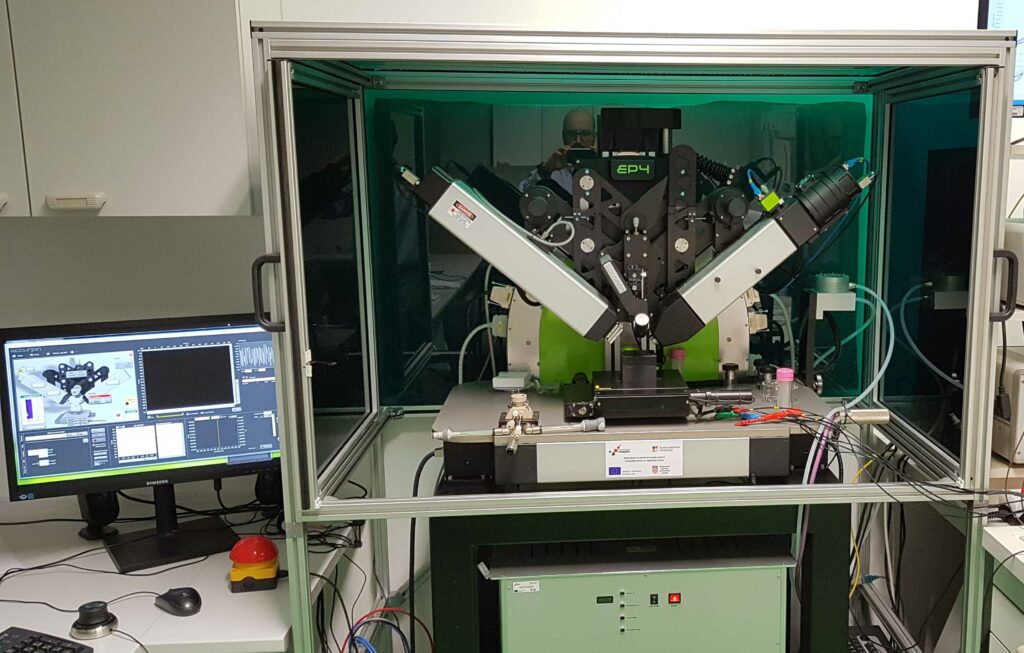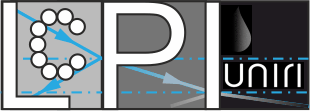Spectroscopic imaging ellipsometer (Accurion EP4)

Spectroscopic ellipsometry is a non-destructive optical method for determining the dielectric function and thickness of thin films and surface layers, down to the nm scale. The technique can be operated in-situ for monitoring the formation of such layers, while the imaging (nulling) ellipsometry enables combining the power of ellipsometry with microscopy, thus overcoming the limits of classical ellipsometers. In combination with the electrochemical station (potentiostat), the (electrochemical) spectroscopic ellipsometry becomes the ultimate tool for in-situ measurements of the optoelectronic properties of conducting and semiconducting films, upon the application and variation of an electrochemical bias.
Electrochemical station

Autolab PGSTAT 128N is a state-of-the-art potentiostat offering measurements with three- or four- electrode electrochemical cells. In combination with the NOVA software, it offers a wide range of methods frequently used in preparative and analytical electrochemistry, such as chronoamperometry, chronopotentiometry, voltammetry and the electrochemical impedance spectroscopy.
Zetasizer

Nanobrook OMNI zetasizer enables measurements of particle size distribution and electrophoretic mobility of nanoparticles in suspensions and polyelectrolytes, including proteins.
Potentiometric titrator

Automated potentiometric titrations with ionic strength control present the ideal technique for measuring the charging (ion binding) isotherms of polyelectrolytes in solution and surfaces of colloidal particles in suspensions. The technique was developed during the PI’s PhD work, and in 2012. the instrument was donated to us by Professor Michal Borkovec from the University of Geneva, Laboratory for colloid and surface chemistry.
Many other techniques, including the XPS spectrometer, secondary ion mass spectrometer, atomic layer deposition and more, are available at the Center for micro- and nanosciences and technologies (NANORI), University of Rijeka.
The equipment of the LCPI was in part acquired with support of the European Fund for Regional Development and the Ministry of Science, Education and Sports of the Republic of Croatia (project Research Infrastructure for Campus-based Laboratories at the University of Rijeka, grant number RC.2.2.06-0001) ![]()

